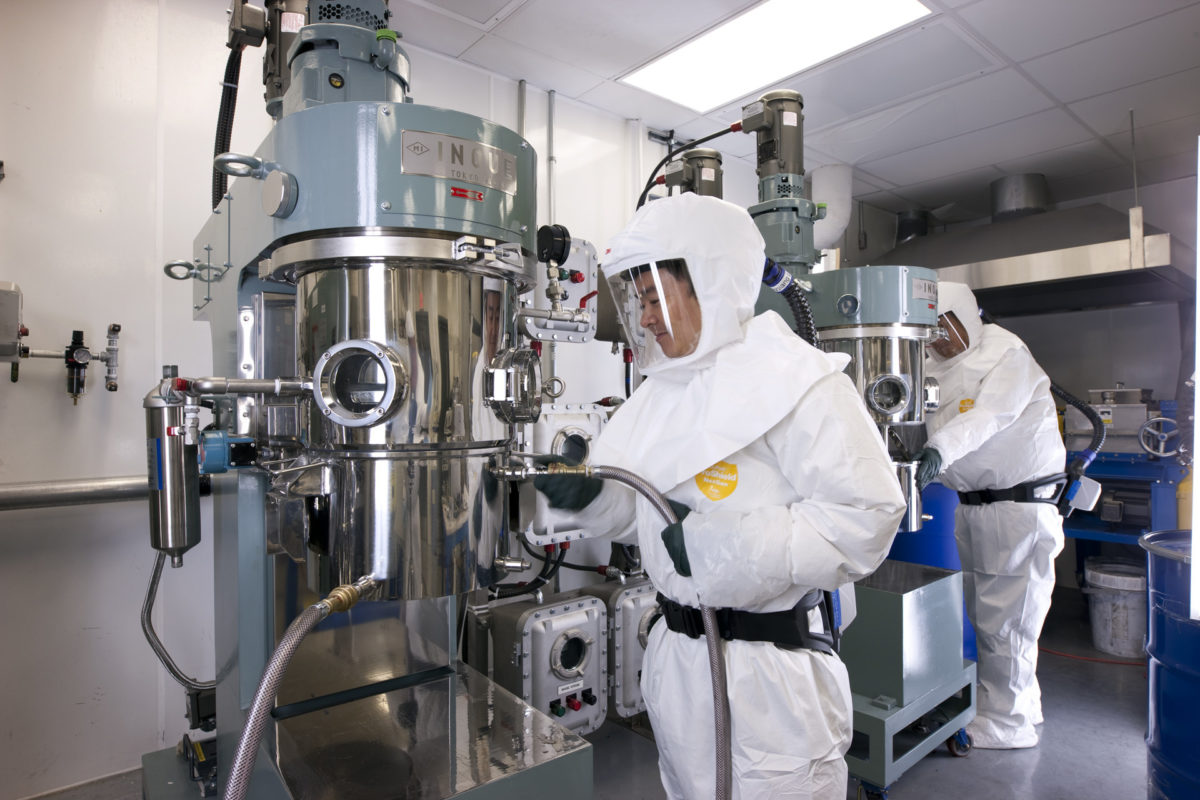Carmaker Mercedes Benz has teamed up with Canadian battery material specialist Hydro-Québec to develop solid-state batteries. The German company will use the batteries in its electric vehicles.
Hydro-Québec’s Center of Excellence in Transportation Electrification and Energy Storage has been leading research on advanced battery materials and new battery technologies, including solid-state devices.
Now, in tandem with the German carmaker, the researchers want to test new material under field conditions. The partner companies believe an early-stage, real-world integration and trial phase of testing will accelerate the development cycle. Joint research activities will be carried out at Hydro-Québec's center of excellence in Canada and at the SCE France laboratory belonging to an Hydro-Québec subsidiary.
Solid-state advantages
“The battery is a key component of our electric vehicles,” said Jochen Hermann, VP for eDrive development at Mercedes. “Mastering their chemistry is, therefore, a focal topic for Mercedes-Benz research and development. Solid-state batteries are supposed to be a next important technology leap for e-mobility, meaning an alternative to today’s li-ion [lithium-ion] battery systems. The latest advancements Hydro-Québec researchers have made are very promising and we are looking forward to the first results of our joint development program.”
Popular content
Hopes are high for solid-state batteries to make a commercial breakthrough. Offering potentially higher energy density of more than 400 Wh/liter, more cycles at a reduced rate of degradation and less weight, development is being primarily driven by automotive companies. Solid-state batteries do not require the flammable electrolytes used in conventional lithium-ion batteries and could be far cheaper as they do not use cobalt.
Raw material sourcing
As part of pv magazine’s global UP sustainability initiative, we are focusing on raw material sourcing in the energy storage industry. In this quarter you can look forward to reading about lithium extraction in Chile, cobalt from the Congo and the development of raw material recycling. Contact up@pv-magazine.com for more information or to jump on board!
However, market-ready devices have not materialized yet. Chinese battery giant Ganfeng – which holds a supply agreement with Volkswagen – in August announced plans for a 100 MWh solid-state battery pilot production line.
Hydro-Québec can boast 2019 patents related to a new electrolyte for lithium-ion solid-state batteries developed by the University of Porto’s Maria Helena Braga and 2019 Nobel chemistry laureate John B Goodenough. The Canadian institution said it will integrate the electrolyte into commercial solid-state batteries.
“The partnership with Hydro-Quebec has provided the critical technology development needed for commercial production of intellectual property generated at The University of Texas at Austin,” said Goodenough.
This content is protected by copyright and may not be reused. If you want to cooperate with us and would like to reuse some of our content, please contact: editors@pv-magazine.com.



9 comments
By submitting this form you agree to pv magazine using your data for the purposes of publishing your comment.
Your personal data will only be disclosed or otherwise transmitted to third parties for the purposes of spam filtering or if this is necessary for technical maintenance of the website. Any other transfer to third parties will not take place unless this is justified on the basis of applicable data protection regulations or if pv magazine is legally obliged to do so.
You may revoke this consent at any time with effect for the future, in which case your personal data will be deleted immediately. Otherwise, your data will be deleted if pv magazine has processed your request or the purpose of data storage is fulfilled.
Further information on data privacy can be found in our Data Protection Policy.